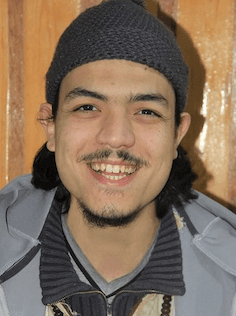TAWAKKUL
A Home Without Walls: A Journey in the Vastness of Divine Care
I set out on this journey thinking I was merely traveling from one place to another, moving between cities, crossing borders. But I did not know that this voyage would take me beyond the limits I had unknowingly placed on my own understanding of sustenance (rizq), shelter (lawdh), and divine care (ʿināya).
In the snowy winter of 2025 in Northern Germany, I walked for seven days with a handful of Karkari disciples along a path where my certainty (yaqīn) was tested, where my reliance (tawakkul) on apparent means (asbāb) was suspended, and where I witnessed firsthand the generosity of my Lord. I once believed that home (bayt) was a structure I could own or rent, that food and money had to be earned, that safety came from walls and locked doors. But through the blessings and permission of my Shaykh, Sidi Mohamed Faouzi al-Karkari, quddisa sirruh, I came to taste a truth that cannot be learned through words alone: home is wherever Allah places you, and provision comes from Him alone.
The House of God Has No Walls
By the blessings of our master and guide, Shaykh Mohamed Faouzi al-Karkari, quddisa sirruh,
“If He makes you witness (ashhadaka) the unfolding of divine apportionment (qisma), you will see withholding (manʿ) as the very essence of giving (ʿaṭāʾ).” — Karkari aphorism
All praise belongs to Allah for the generosity and grace of my spiritual teacher, Shaykh Mohamed Faouzi al-Karkari, quddisa sirruh, who granted us this blessed Sufi peregrination (siyāḥa), which lasted seven days. We once thought that home (bayt) was a structure of walls and roofs, a fixed place of shelter. But we found that every land of Allah is a home for us. Allah says in the Qur’an:
“For the protection of Quraysh,
Their protection in the winter and summer journey.
So let them worship the Lord of this House,
Who fed them against hunger and granted them safety from fear.” (Qur’an 106:1-4)
We discovered that it is not the rented lodging that shelters us, but rather Allah Himself who grants refuge (lawdh). In the freezing cold of Northern Germany, we found dwelling (maskan), clothing (libās), blankets, and even a pillow. Before this, when we hungered, we either asked for food or purchased it. But when walking the path of reliance in this vast house of Allah, provision (rizq) was already prepared and of the finest quality. We used to believe that one must depend on worldly means (asbāb) to survive—only to experience firsthand that Allah provides sustenance without intermediary.
To taste the reality that all of creation is your dwelling and that it is He who shelters you changes the entire system you were raised upon. You begin to perceive—if only a little—that all affairs are truly in Allah’s hands, not in those of any creature, no matter how much you strategize or plan. Nothing unfolds except what He has decreed. This realization brings forth an indescribable serenity (ṭumaʾnīna) in the divine decree (qadar).
You may ask for a drop, and He withholds it—only to grant you an entire river. Our master, Shaykh Mohamed Faouzi al-Karkari, quddisa sirruh, says: “If He makes you witness the unfolding of divine apportionment, you will see withholding as the very essence of giving.”
Eventually, you reach a state where, upon requesting something, you anticipate denial before fulfillment—not out of despair, but because you have come to know that if He withholds, what follows will surpass what you originally sought. Glory be to Allah, the Most Great.
What is even more astonishing is that, at times, you find the threads of divine power (qudra) weaving events in alignment with the inclinations of your heart or the desires of your soul (nafs). And here, you taste something of His words: “When his Lord manifested Himself (tajallā) to the mountain, He made it crumble to dust, and Moses fell down unconscious.” (Qur’an 7:143) Although the mountain was reduced to dust and Sayyidunā Mūsā fell unconscious, both remained in their place. The mountain ceased to be a mountain, and Mūsā ceased to be Mūsā—yet they were still there. Our Shaykh, quddisa sirruh, captures this mystical transformation in his poem Hiya Laylā published in his poetry collection Dīwān dīnān al-arwāḥ:
I arranged my essence in stations (marāqī),
I transformed my body—its vessel (innāhā).
I singularized the spirit—its breath blew forth,
I spread out the meanings of Ṭāhā.
I engraved an unseen inscription,
My heart contained its name.
I altered the letters of my name,
It taught me its Named.
Now that I have returned, I can no longer see home as I once did. The walls that defined it—shaped by the confines of my lower intellect, bound by the limitations of the apparent realm—have crumbled. And though I often fall into heedlessness (ghafla), I cannot unsee the vastness of Allah’s care (ʿināya). I have learned that the home I was searching for was never made of bricks and wood, but rather, it was the certainty that Allah alone is the One who shelters, nourishes, and sustains. This journey was not just through cities and landscapes, but through the very nature of reliance (tawakkul) itself.
All praise belongs to Allah for the grace of my spiritual teacher and guide, Shaykh Mohamed Faouzi al-Karkari, quddisa sirruh, for his generosity and boundless kindness toward his weak and wayward disciples. May Allah allow us to walk this path with open hearts, until every veil is lifted and we see with luminous clarity that we have never been outside His care—not even for a moment.
Publication Date
March 9, 2025
Translators:
Marouen Jedoui


